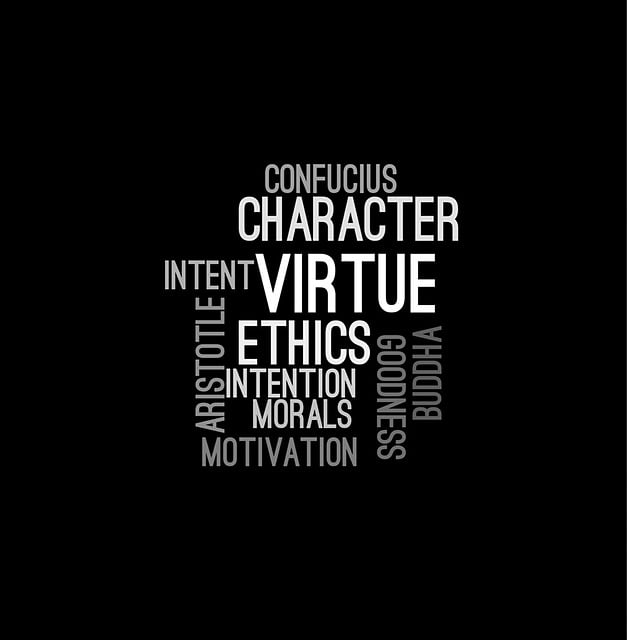“To give anything less than your best, is to sacrifice the gift.” – Steve Prefontaine
Most of discussions regarding companies and business circle around performance, culture and agility to reach the desired goals, KPIs and ultimately company profits. One component that is not so prevalent in these discussions is the workplace ethics in any given company. It represents the monumental key side of the company’s culture because it heavily influences on the aforementioned outcomes. So let’s begin with the obvious question – what is/are workplace ethics? Workplace ethics are moral principles on which employees’ actions are determined, inside and outside of the company. It stands as a guide to a professional conduct and what is right or wrong from a business standpoint. The importance of those aspects is such a crucial thing because it directly impacts anything related to employees – behavior, performance, company morale, company loyalty, motivation etc. The endgame is the best ROI on any given expense and because of the influence it has on those goals it’s very important to monitor, expand and continuously improve on the workplace ethics to ensure best results.

Benefits of workplace ethics
The “human” part in human resources isn’t just for show because we always return to its basic premise which is us being social creatures, influenced by emotions and individual well-being. To ensure that those aspects are shared within the company culture, a part of the workplace ethics has to be nurturing teamwork in any given business endeavor. When trust is built between employees, the motivation to have better work performance rises in and on itself, not to mention the fact that any collaboration can bring wonders and new ideas for business success. This isn’t only a concern for the relationship between employees because the line managers also have to participate in the notion that employees should feel good and valued. In fact, it’s their job to promote this behavior because it will most likely increase their loyalty to the company which will, in turn, reduce turnover. Feedback is king once again and it never fails if used frequently and correctly!
So what exactly is the core benefit to all this? A powerful company reputation that exudes the following components:
- Decreases overall turnover
- Increases employee motivation
- Improves performace and productivity
- Improves morale
- Improves company culture

What are the steps to ensure workplace ethics
- Portrayal of leadership-like behavior/abilities/skills – companies and HR departments should lead by example and promote the positive behavior which influences the professional conduct. Creating a code of ethics is a smart idea as it could help employees on how to behave in the workplace, how to act during the meetings, how to portray and exude teamwork-like behavior. Another idea is the reward employees for such behavior and promote it to the rest of the employees to spread the idea and influence.
- Importance and significance of consequences – as you should reward ethical behavior so you should stand to bring repercussions for unethical behavior. It sounds harsh but it has the same logic behind progress of the overall improvement and if it’s communicated the right way through any sort of feedback, employees won’t take it too much to heart. A verbal or written warning, suspension or something similar is a good start to enforce it.
- Freedom to report unethical behavior – this sounds counterproductive at first because it could promote bad atmosphere between employees. That can be resolved by good line managers’ way of handling such situations. If the idea is to report it purely to enforce progress of the company ethics, the right line manager will handle it in such a way that the reported employee wouldn’t feel as though they were being reported but by simple observation of the superior. Another effective way is to employ a system which allows for anonymous reporting to get around aforementioned, potential problems.
Values to uphold
There’s couple of values to discuss which are of most importance when it comes to building the workplace ethics. The first one is integrity which basically means individual principles or morals which are upheld regardles of the business/workplace outcomes. Doing the right thing comes before satisfying an agenda, whichever one. The second one would be kindness which is really important for spreading positive recognition and empathy to fellow employees. Promoting a recognition for an employee’s success will do wonders for their overall well-being. The third one would be self-conntrol which is really important because we’re heavily influenced by emotions. Maintaining composure and rational thought is always a goal to reach so if anyone finds themselves in a position where that is compromised by emotions, it’s best to pull back, recover and then return from the standpoint of conctrol.
Takeaway
Workplace ethics stands as one of the most important factors for a company’s success. A company shouldn’t focus on results without having the right ethics in place because of the connection between them. Without any professional conduct set in place, the results will inevitably suffer because its impact will be seen by the way employees handle themselves through basic social interactions all the way to their overall performance. As company culture is a prime topic in today’s HR sphere and any company for that matter, workplace ethics has to come hand in hand to ensure best possible business outcome.
